ASTANA — The fifth World Nomad Games (WNG) showcased a stunning display of strength at the powerful nomad competition on Sept. 11 in Astana. Athletes from across the globe tested their limits in an intense series of challenges designed to push their physical strength and agility.
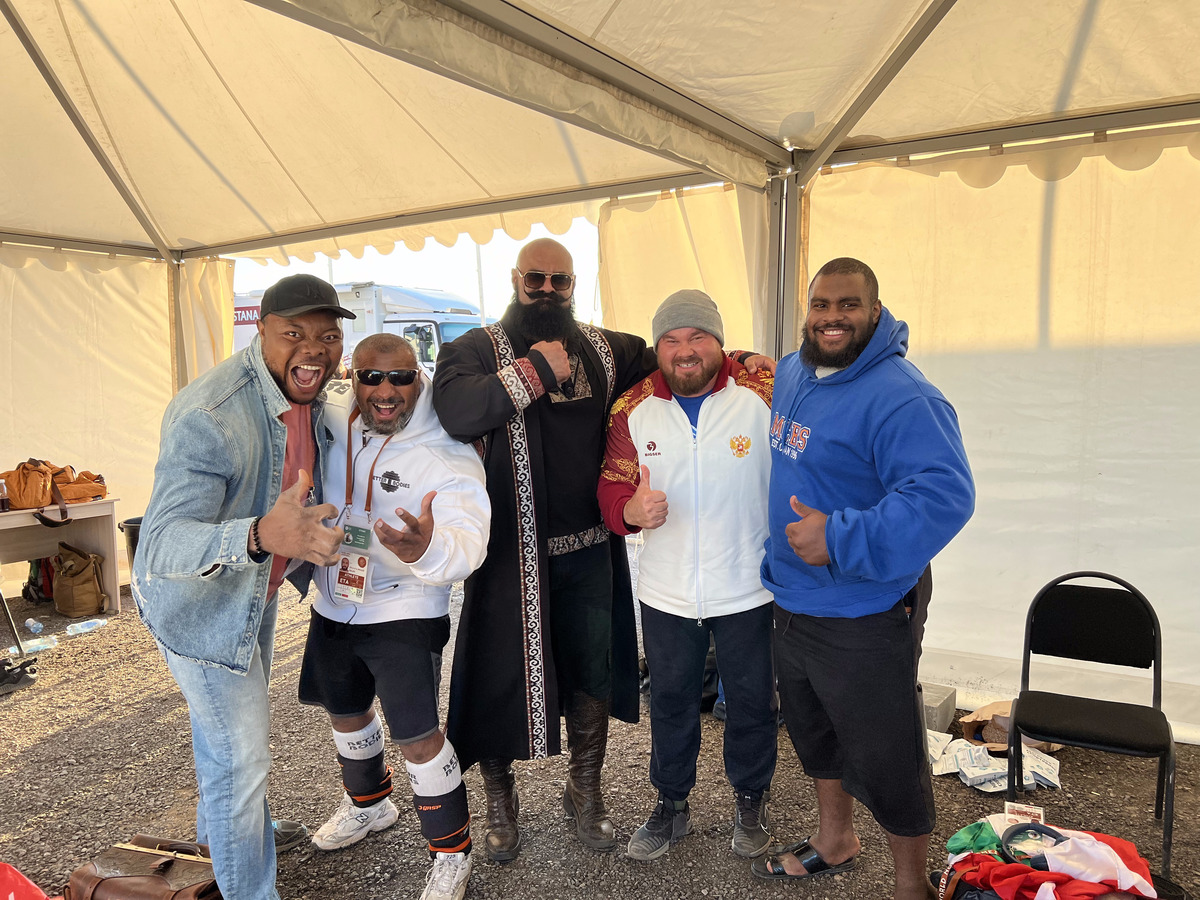
Strongmen from Nigeria, Kuwait, Russia and Oman with Kazakhstan’s Sergey Tsyrulnikov (in the middle) at the backstage of the Powerful Nomad competition on Sept.11. Photo credit: The Astana Times / Nagima Abuova
Sixteen athletes from 16 countries, including Armenia, Belarus, China, Cyprus, India, Iran, Kazakhstan, Kuwait, the Kyrgyz Republic, Nigeria, Oma, Pakistan, Russia, Spain, Tajikistan and Uzbekistan, competed for the title of the most powerful nomad.
The competition featured five disciplines, including lifting and carrying a 100-kilogram stone over 10 meters, squatting with a 100-kilogram bag, throwing a 10-kilogram javelin at a target from 10 meters away, squatting with a 130-kilogram log on shoulders and towing a 200-kilogram trolley for 10 meters.
Kazakhstan’s victory
Kazakh athlete Azamat Makulbekov claimed a gold medal, triumphing over strong contenders. Iran’s Reza Gheitasi secured the silver, and Russia’s Vagapov Denis earned the bronze.
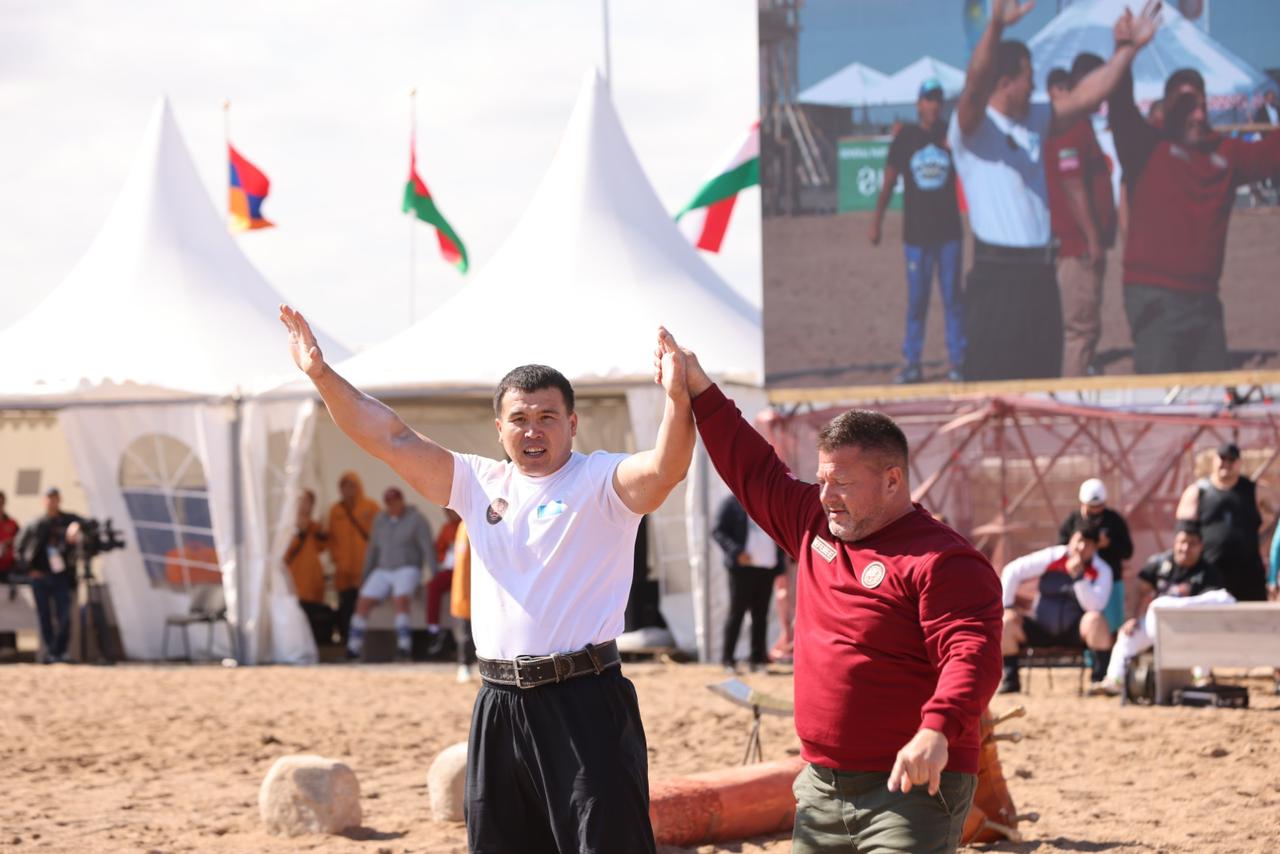
Kazakh athlete Azamat Makulbekov. Photo credit: Fifth World Nomad Games’ press service
Makulbekov, competing in his first major international event, credited his hard work and determination for the victory.
“I started preparing at the beginning of this year when I learned I would be a part of the fifth World Nomad Games. I passed the regional qualifying competitions, which allowed me to compete for the honor of my country,” Makulbekov said in an interview for this story.
“At the beginning of my career, I started with traditional contests such as lifting the sheep. I lifted a 40-kilogram sheep 3,555 times for five hours. After that, last year, I started participating in regional strongman contests to try myself on different disciplines,” he added.
He said he is keen to compete in strongman competitions beyond Kazakhstan.
International stage
Iranian athlete Reza Gheitasi also shared his thoughts on the competition. He suggested that, in future events, athletes with the best performance in the first discipline should compete last in the next discipline, following the standard practice in international competitions.
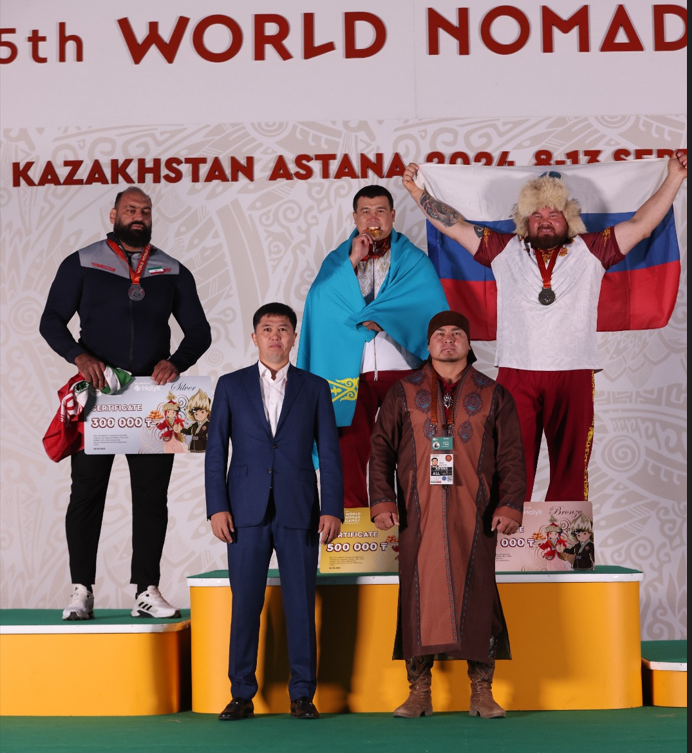
Winners of the Powerful Nomad from left to right: Iran’s Reza Gheitasi, Kazakhstan’s Azamat Makulbekov and Russia’s Vagapov Denis. Photo credit: Fifth World Nomad Games’ press service
“You should know your opponents’ performances before you compete. When the participants’ order to perform is the same each time, only the last competitor has this advantage,” Gheitasi told The Astana Times.
Beyond the nomad games, Reza revealed his dream of competing and winning the World’s Strongest Man (WSM) competition.
For Juan Ferrer Casanova, representing Spain, the event marked his first time at the Nomad Games. He noted that unlike traditional strongman competitions, where athletes often focus on gym-based exercises and lifting or pulling heavy trucks, the nomad games emphasize natural strength.
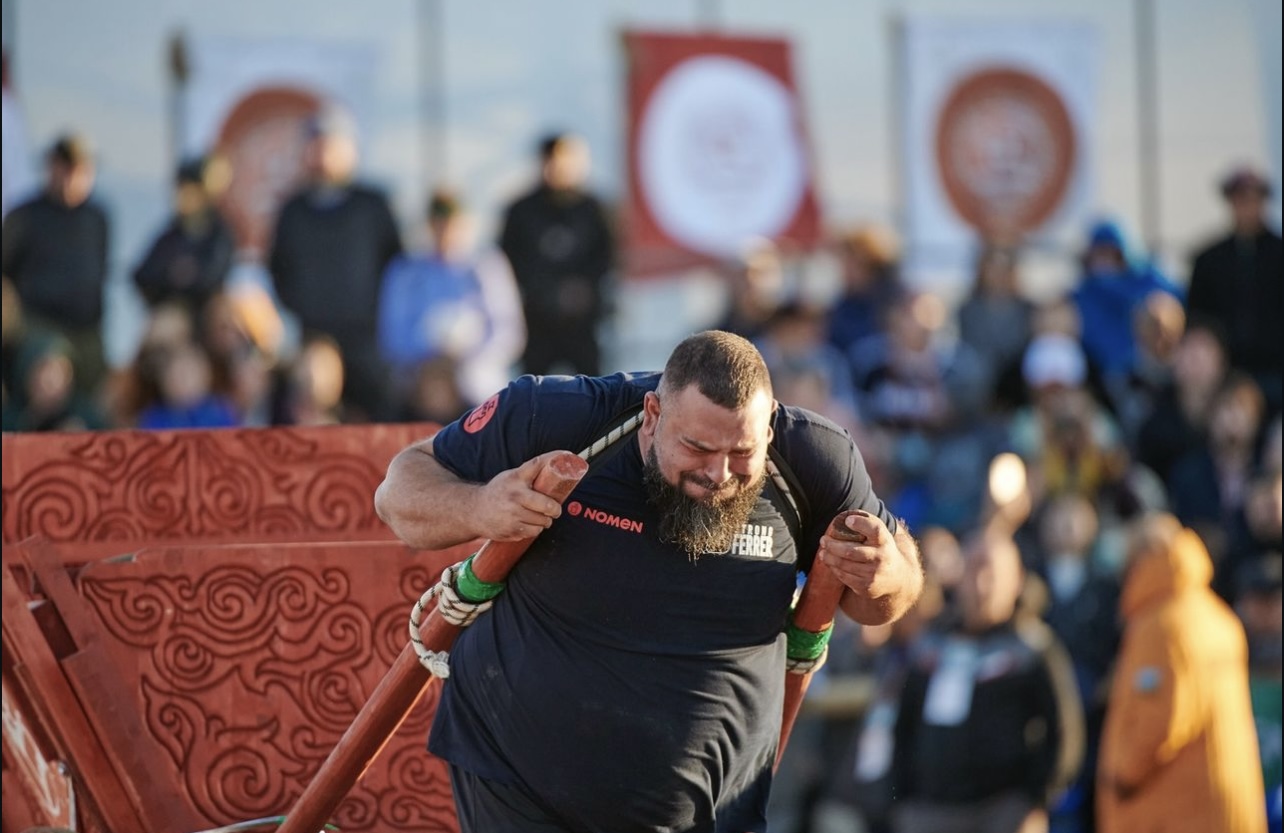
Juan Ferrer Casanova tows a 200-kilogram trolley at Powerful Nomad on Sept.11. Photo credit: Fifth World Nomad Games’s press service
“It is about more natural, practical strength, like what farmers and laborers use in their daily work. Instead of pulling a 25,000-kilogram truck, you carry a wheelbarrow. It’s a different kind of strength,” Casanova said.
Ahmed Alismaily, a representative of Oman, had three months of preparation. “I feel very well,” he said, proud of his performance despite the challenging nature of the events.
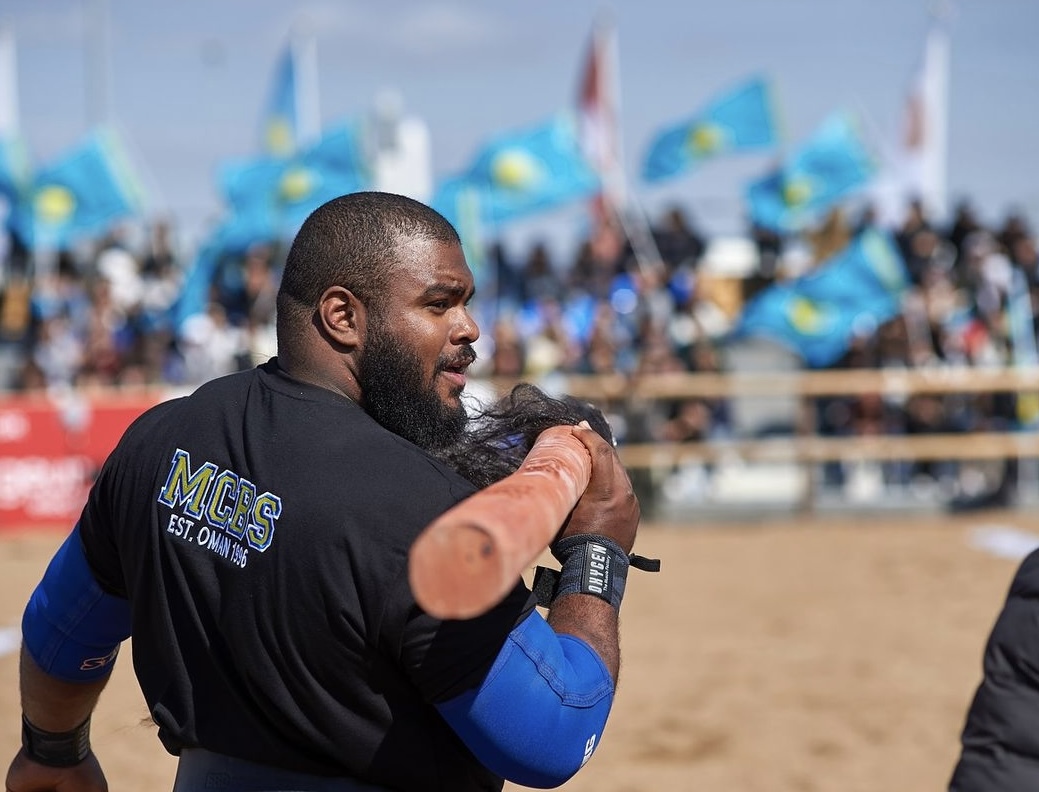
Ahmed Alismaily, an athelete from Oman throws a 10-kilogram javelin at a target from 10 meters away. Photo credit: Fifth World Nomad Games’ press service
“The lock squat was the hardest for me. It was tough having it on my shoulders, and I could not complete it,” said Alismaily, though he remained optimistic about his overall experience. “Everybody has their own strengths and weaknesses, but I am happy with how things are going.”
Alismaily noted that his journey into heavy sports began three years ago after watching professional strongmen, who inspired him to pursue the sport.
